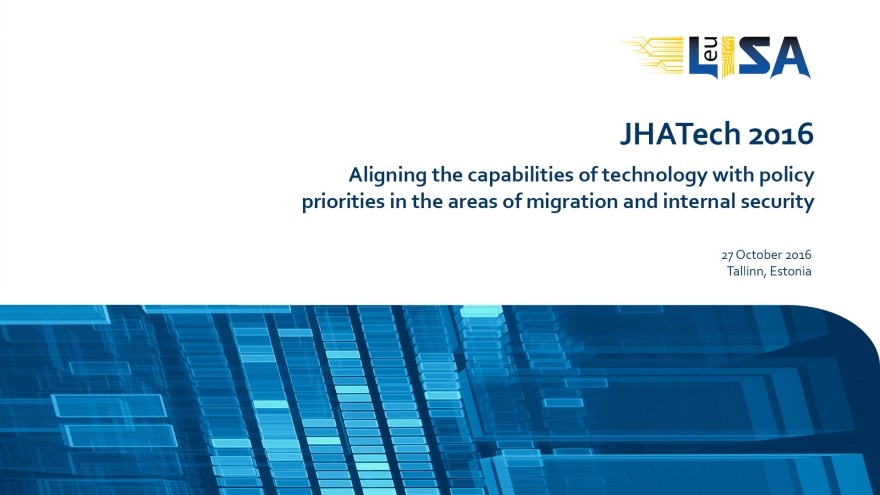eu-LISA hosted its annual conference in Tallinn, Estonia, on the 27th of October 2016. Attendees at this year's event were afforded the opportunity to take a fresh look at the role of technologies in the domain of Justice and Home Affairs and the extent to which new and innovative developments can support implementation of policy.
The evolution of the JHA landscape in recent years has brought different challenges to the fore. Those working in the field are challenged by an apparent increase in the threat of terrorism, changing patterns and trends in migration and an expectation that the myriad potential threats apparent at borders can be detected. It is clear that assurance of internal security requires a cohesive approach that cuts across traditional boundaries between border control, asylum management and law enforcement. Authorities involved must work together to ensure the availability of relevant data at the time that it is required and to allow for the combination of data as necessary to inform decision making.
Policies have evolved to meet the needs of a changing world. The integrated border management concept has been developed to improve relevant information sharing at borders. The theme of interoperability has been emphasised recently as a means to ensure information availability and to allow for easier implementation of harmonised and efficient processes. Technology is now a political priority in itself as the enabling force behind such concepts. At JHATech 2016, the means to align the capabilities of technologies with policy priorities in the JHA field were examined and debated.
